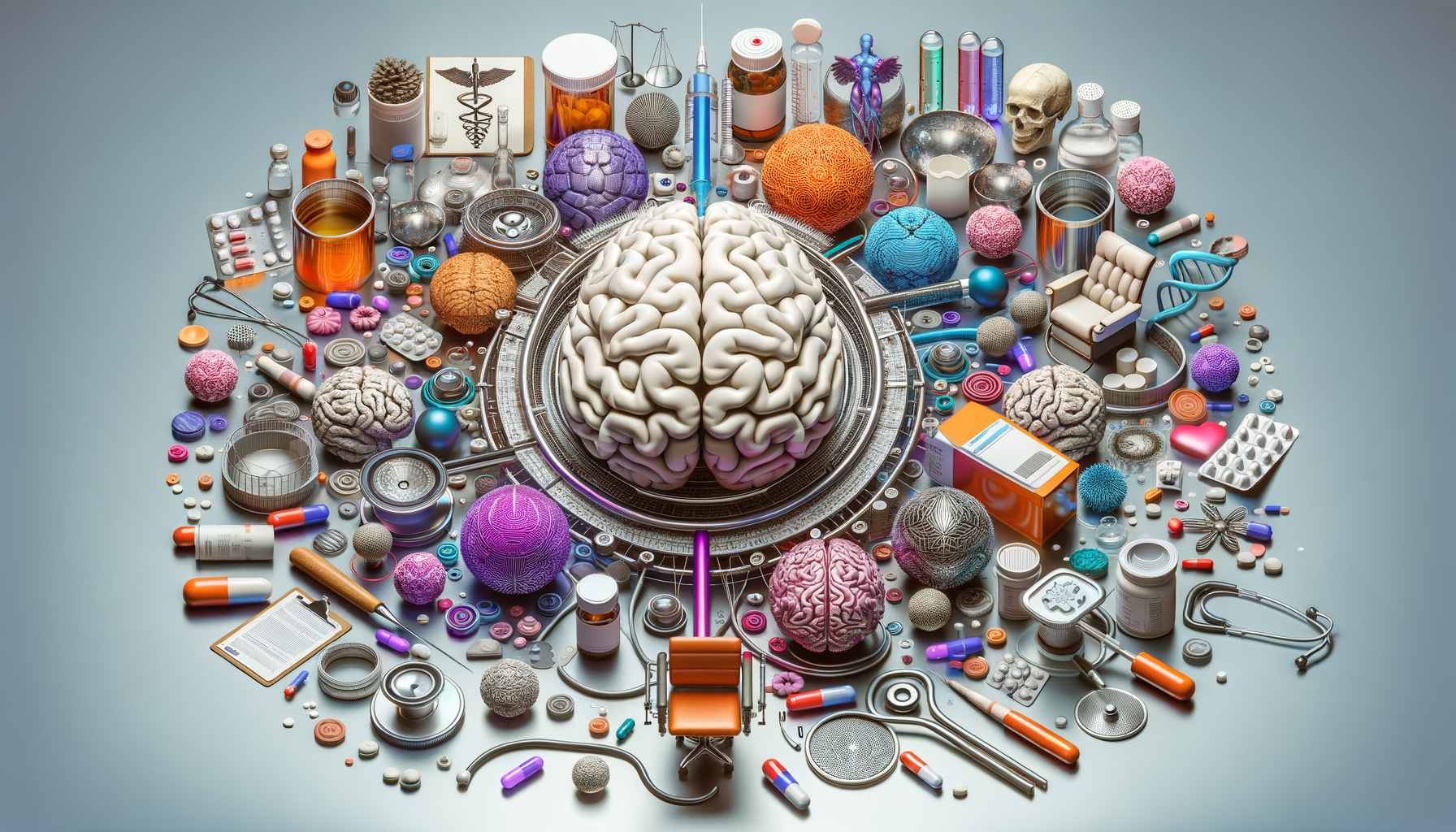Understanding Schizophrenia: An Overview
Schizophrenia is a complex mental health disorder that affects how a person thinks, feels, and behaves. Often characterized by episodes of psychosis, hallucinations, and disorganized thinking, it presents significant challenges for both patients and their families. Understanding schizophrenia is crucial for developing effective treatment methods. The disorder typically emerges in early adulthood, and while the exact cause remains unknown, a combination of genetic, environmental, and neurological factors are believed to contribute. Recognizing the symptoms early can lead to more effective management of the disorder.
Common symptoms of schizophrenia include:
- Hallucinations, such as hearing voices
- Delusions, or false beliefs not based in reality
- Disorganized thinking and speech
- Negative symptoms, such as lack of motivation or withdrawal from social activities
Effective treatment requires a comprehensive understanding of these symptoms and how they manifest in individuals. This knowledge is the foundation for developing a tailored treatment plan that addresses the unique needs of each patient.
Pharmacological Treatments: The Role of Medication
Medications are a cornerstone in the management of schizophrenia, primarily aimed at reducing the severity of symptoms and preventing relapses. Antipsychotic drugs are the most commonly prescribed, and they work by altering the effects of neurotransmitters in the brain. There are two main categories: typical (first-generation) and atypical (second-generation) antipsychotics.
Typical antipsychotics, such as haloperidol, have been used for decades and are effective in managing positive symptoms like hallucinations and delusions. However, they often come with significant side effects, including tardive dyskinesia, a disorder resulting in involuntary movements.
Atypical antipsychotics, like olanzapine, are newer and tend to have fewer side effects. They are effective in managing both positive and negative symptoms, providing a more balanced approach. The choice of medication depends on the individual’s specific symptoms, side effects, and overall health profile. Regular monitoring and adjustments by healthcare professionals ensure that the medication remains effective over time.
It’s important to note that while medications can significantly improve symptoms, they are not a cure. They are most effective when used in conjunction with other treatment modalities.
Psychotherapy: Complementary Approaches to Treatment
Psychotherapy plays a vital role in the treatment of schizophrenia, offering patients the tools to manage their symptoms and improve their quality of life. Cognitive Behavioral Therapy (CBT) is one of the most effective forms of psychotherapy for schizophrenia. It helps patients identify and change distorted thinking patterns and behaviors that contribute to their symptoms.
CBT can be particularly beneficial in helping patients deal with delusions and hallucinations. By challenging these thoughts and learning coping strategies, patients can reduce the distress associated with these symptoms. Moreover, CBT encourages the development of problem-solving skills and the improvement of social interactions.
Another effective therapeutic approach is family therapy. Schizophrenia not only affects the individual but also impacts their family. Family therapy educates family members about the disorder and provides them with strategies to support their loved one. It fosters a supportive environment, which is crucial for the patient’s recovery and well-being.
Incorporating psychotherapy into the treatment plan enhances the effectiveness of pharmacological treatments and provides a holistic approach to managing schizophrenia.
Social Support and Rehabilitation: Building a Supportive Environment
Social support and rehabilitation are essential components of a comprehensive schizophrenia treatment plan. They focus on helping individuals reintegrate into society and lead fulfilling lives. Social skills training is one form of rehabilitation that teaches patients how to interact effectively with others, improving their communication and relationship-building skills.
Vocational rehabilitation programs are also crucial, as they assist individuals in finding and maintaining employment. These programs provide job training and support, helping patients develop the skills necessary to succeed in the workplace.
Community support services, such as peer support groups, offer a platform for individuals to share their experiences and learn from others facing similar challenges. These groups provide emotional support and reduce feelings of isolation, which are common among those with schizophrenia.
Creating a supportive environment is vital for the recovery process. It empowers individuals to take control of their lives and fosters a sense of belonging and purpose.
Innovative Treatments and Future Directions
As our understanding of schizophrenia evolves, so too do the treatment options available. Researchers are continually exploring new and innovative approaches to improve outcomes for patients. One promising area is the use of digital therapeutics, which leverage technology to deliver personalized treatment plans and monitor symptoms in real-time.
Another emerging field is the use of neuromodulation techniques, such as transcranial magnetic stimulation (TMS) and deep brain stimulation (DBS). These methods target specific areas of the brain to alter neural activity, offering potential relief for symptoms that are resistant to traditional treatments.
Genetic research is also paving the way for more personalized treatment approaches. By identifying specific genetic markers associated with schizophrenia, researchers hope to develop targeted therapies that address the underlying causes of the disorder.
While these innovative treatments hold promise, they are still in the early stages of development. Continued research and clinical trials are necessary to determine their efficacy and safety. As we look to the future, the integration of these new approaches with existing treatments offers hope for more effective management of schizophrenia.




Leave a Reply